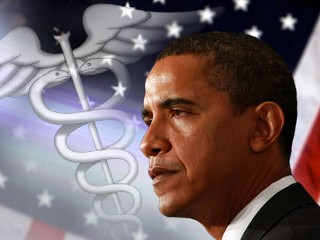 By Logan Scisco
By Logan Scisco
Since the summer, the Obama administration has attempted to push healthcare reform through Congress. With 46 million Americans uninsured, the administration and its Democratic colleagues have emphasized the urgency of passing healthcare reform that would provide insurance to these individuals who do not possess insurance because of choice, their economic condition, or because a pre-existing medical condition excludes them from obtaining quality health insurance. The current economic situation in the country, where the official unemployment rate is the highest in 26 years at 10.2% (some have the actual number of unemployed at 17%), would seem to help the administration pass this reform. Another added advantage of the administration going into the healthcare debate is that the Democrats control both houses of Congress and have a crucial filibuster-proof majority in the Senate.
However, Obama’s initial push to pass healthcare reform by the end of the summer bit the dust and when representatives went back to their constituents they faced hostile town meetings. While the media debated the merits of these meetings, they showed how divisive healthcare reform can be as violence was reported at some of the town halls and one man even had a finger bit off. Furthermore, although the House of Representatives succeeded shortly after the 2009 elections in passing a healthcare bill, the Senate is facing a series of complications in ensuring healthcare reform can clear its chamber.
This topic brief will provide an updated focus on the healthcare debate. It will examine the future of the public option, the new controversy involving abortion in the healthcare legislation, and the chances of the Democrats getting a healthcare bill through the Senate.
As a side note, I cannot recommend enough that extempers read as much as possible about the healthcare debate, looking at medical journals such as the American Journal of Medicine and other publications to get a sense of the problems that effect American healthcare. It would also be wise for extempers to read about other “national” healthcare systems that exist in Canada, Great Britain, and France because comparisons in speeches are never a bad idea.


 1. Is Obama making a major political mistake in putting Khalid Sheikh Mohammed on trial in U.S. federal court?
1. Is Obama making a major political mistake in putting Khalid Sheikh Mohammed on trial in U.S. federal court?

 By Logan Scisco
By Logan Scisco Last week, President Barack Obama tried to change the message on the healthcare debate. As the American public has grown more skeptical of the President’s agenda, Obama’s team has tried to retake the initiative in the media and part of that was Obama’s address to a joint session of Congress. However, during Obama’s speech when he said that illegal immigrants would not receive coverage in his healthcare plan he was interrupted with a shout of “You lie!” by Joe Wilson, a Republican representative from South Carolina. For anyone who has not seen the video, it is worth a look just to see Speaker of the House Nancy Pelosi’s facial expression after the incident.
Last week, President Barack Obama tried to change the message on the healthcare debate. As the American public has grown more skeptical of the President’s agenda, Obama’s team has tried to retake the initiative in the media and part of that was Obama’s address to a joint session of Congress. However, during Obama’s speech when he said that illegal immigrants would not receive coverage in his healthcare plan he was interrupted with a shout of “You lie!” by Joe Wilson, a Republican representative from South Carolina. For anyone who has not seen the video, it is worth a look just to see Speaker of the House Nancy Pelosi’s facial expression after the incident.